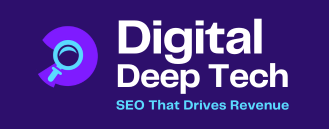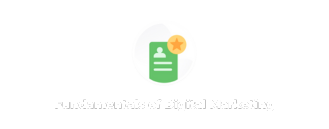SEO for Coaches: Proven Tactics to Drive Clients to Your Coaching Business
This post explains proven SEO tactics designed just for coaches. You will discover how to understand what people are really searching for and how to create SEO content that builds trust. It also shows how to add CTAs that fit your client’s path perfectly. Keep reading!

Reviewed by Deepak Sharma
SEO Specialist
May 28, 2025 | 6 min. read

Table of the content
Want to drive clients to your coaching business?
Learning SEO for coaches makes you stand out and builds your brand in the competitive digital world of today. Having a website in the highly competitive field of coaching is no longer enough. What you require is a data-driven SEO strategy focused on high-intent keywords, suited to your ideal client’s search behavior, and that supports the technical SEO basics to outperform the competition.
SEO isn’t only about the ranking, but engaging with those who come in search of your coaching expertise and transforming them into paying clients.
For a business coach, generic SEO strategies do not suffice. Success requires high degrees of precision of keyword research involving niche terms such as “executive coaching ROI” and “corporate leadership coaching” as well as optimized site architecture, mobile responsiveness, and content silos. The process involves state-of-the-art on-page optimization, acquiring authoritative backlinks, and conversion-oriented user experience design to ensure maximum lead generation.
Why SEO is Essential for Your Coaching Business
Businesses that depend on trust and strong associations need credibility and targeted communication; SEO gives them that. It doesn’t work overnight, but it keeps building results long after you start. You can track what’s working and long-term ROI for coaching businesses. It’s not just short-term, it builds returns for the long haul.
In an area of a digital market full of noise and constant change, this approach brings lasting value and a way to stay ahead. When implemented strategically, it connects coaches directly to high-intent prospects actively seeking guidance.
Below, we compare SEO to traditional marketing and explore how understanding search intent transforms lead generation for coaches.
SEO vs. Traditional Marketing for Coaches
| Criteria | SEO (Search Engine Optimization) | Traditional Marketing (Print, Radio, TV) |
|---|---|---|
| Targeting | Precise targeting using keywords, user behavior, and location filters. | Broad targeting often reaches irrelevant audiences. |
| Cost Efficiency | One-time setup with low ongoing costs; traffic builds over time. | Recurring high costs; short-lived exposure. |
| Tracking Results | Easy to track performance with tools like Google Analytics. | Hard to measure ROI; limited tracking unless combined with codes. |
| User Intent | Reaches people actively searching for coaching. | Push-based; may not match the audience’s current needs. |
| Long-Term Value | Content ranks for months or years, building momentum. | Visibility stops when the ad campaign ends. |
| Credibility | Boosts authority and trust through a consistent online presence. | Temporary awareness doesn’t build digital authority. |
Understanding Search Intent for Coaches
Search success happens when your content fits what your target clients are looking for. They type words into Google, hoping to find something. You must understand those keywords and create pages that speak to them.
There are typically four types of search intent:
- Informational (e.g., “what does a life coach do”)
- Navigational (e.g., “Tony Robbins coach site”)
- Transactional (e.g., “hire a business coach near me”)
- Commercial investigation (e.g., “top-rated executive coaches in [city]”)
People looking to take action or hire someone often search using certain keywords, called high-intent keywords. Using them helps your content get more results. That’s why keyword research matters so much. Tools like Ahrefs, SEMrush, and Google’s Keyword Planner show what words your audience types in and how hard they are to rank for.
Business Coaching SEO: Targeting the Right Clients
SEO for business coaches isn’t about broad traffic; it’s about attracting C-suite executives, founders, and organizational stakeholders with high buying intent. This requires strategic targeting that distinguishes business coaching from other coaching categories and aligns keyword usage with decision-stage user behavior.
Understanding the Unique SEO Needs of Business Coaches
Business coaching operates in a results-driven niche, often targeting decision-makers who require measurable outcomes like improved revenue, team performance, or executive presence. This intent shapes the SEO strategy in ways that differ significantly from life or fitness coaching.
| SEO Factor | Business Coaches | Life/Fitness Coaches |
|---|---|---|
| Searcher Persona | Executives, entrepreneurs, and HR departments | Individuals seeking personal change, wellness, or fitness goals |
| Keyword Intent | High commercial and transactional intent (e.g., “executive leadership coach pricing”) | Often informational or motivational (e.g., “how to stay motivated to lose weight”) |
| Content Structure | Case studies, ROI-focused service pages, and white papers | Blog articles, transformation stories, step-by-step guides |
| Backlink Strategy | B2B industry publications, SaaS partnerships, thought leadership sites | Lifestyle blogs, influencer collaborations, wellness platforms |
The niche-focused keywords ensure that you’re speaking your client’s language and attracting the right audience. Ranking for broad terms like “coach” or “career help” can waste resources and attract the wrong leads.
How to Find the Right Business Coaching Keywords
Long-tail keywords (more specific phrases) with transactional intent are your best bet. For example:
- “Best business coach in Austin for startups”
- “Leadership coach for small teams”
- “Executive coaching program with proven ROI”
Use keyword tools to discover high-opportunity terms that match both your niche and location. Ubersuggest, Answer the Public, and Google Trends can help you generate content ideas and spot trending search terms that your ideal clients are actually typing into Google.
Key SEO Components Every Coach Should Know
Modern coaching websites must go beyond surface-level optimization. Technical SEO, content architecture, link building, and mobile UX directly affect rankings, conversion, and long-term organic growth. Each of the following elements must be aligned with the search algorithm’s priorities and user behavior.
Content Creation and Optimization
Content is the heart of SEO. If you want to show up in search results and convert readers into clients, you need engaging, keyword-rich, and well-structured content.
Start with blog posts, service pages, and educational guides that answer your audience’s most pressing questions. Make sure your content includes:
- Insert the target keyword in the <title>, <h1>, first 100 words, and one subheading (<h2> or <h3>).
- Include secondary LSI (Latent Semantic Indexing) terms 2–3 times naturally throughout the copy.
- 0.8–1.2% for primary keywords. Use tools like Surfer SEO or PageOptimizer Pro to benchmark density against the top 10 competitors for a given keyword.
- Use content block design: break text with bullet points, tables, and rich snippets.
- Implement a logical heading hierarchy: H1 → H2 → H3. Never skip heading levels.
- Use descriptive anchor text linking to service pages or related blogs.
- Each blog post should link to at least one core service page (e.g., “executive coaching for founders”).
- Add CTAs above the fold and at the conclusion using schema-friendly HTML buttons or links.
- Use multimedia sparingly but strategically: 1 video, 1–2 images with ALT text optimized.
Google also values user experience. So, make sure your content is scannable, mobile-friendly, and provides genuine value; don’t just stuff keywords for the sake of SEO.
The Power of Backlinks for Coaches
Backlinks, when other reputable sites link back to yours, are one of the top-ranking factors in Google’s algorithm. They’re essentially a vote of confidence that says, “This coach knows their stuff.”
Here’s how to get backlinks as a coach
- Guest Posting on Niche Sites: Use Google operators like “write for us” + executive coaching to find relevant guest post opportunities and pitch expert content.
- Earn PR Backlinks via HARO: Submit insights to platforms like HARO or Qwoted to get featured in high-authority media and earn DR 60+ backlinks.
Leverage Strategic Partnerships: Collaborate with related service providers (e.g., HR tech firms) to exchange content or webinars for backlinks from their websites. - Reclaim Broken or Unlinked Mentions: Use Ahrefs to find broken backlinks or brand mentions without links, and request updates with your preferred anchor and URL.
- Avoid Toxic Backlink Sources: Stay clear of link farms, cheap directories, or unrelated networks to prevent SEO penalties from Google’s algorithm.
The more high-quality backlinks you earn, the higher your domain authority, and the more likely you are to rank on the first page of search results.
Mobile Optimization- Why it is Critical for Coaches
Phones and tablets have taken over; today, over 60% of all internet browsing happens on mobile devices 2025. A coaching website that doesn’t load right on them can lose both users and search engine rank. That’s a big hit to your business.
A mobile-optimized site
- Loads quickly on all devices
- Adapts layout and text to fit smaller screens
- Has easy navigation and clickable buttons
Use Google’s Mobile-Friendly Test tool to check your site and make any necessary updates. Mobile optimization isn’t optional; it’s an SEO necessity.
How to Turn SEO Traffic Into Clients
Driving organic traffic through SEO is only half the battle. Converting that traffic into qualified leads and paying clients requires precision in user experience design, content strategy, and conversion funnel engineering. Below, we dissect two critical aspects: CTA architecture and trust-building through content.
The Role of Calls-to-Action (CTAs) in SEO
What happens next once people land on your site from a search result? That’s where CTAs come in.
A strong CTA guides users to the next logical step in their journey, scheduling a consultation, downloading a guide, or joining your mailing list.
Examples of SEO-aligned CTAs:
- “Book Your Free Discovery Call”
- “Download My Coaching Guide for Executives”
- “Get Weekly Mindset Tips in Your Inbox”
Make sure CTAs are relevant to the user’s intent. If someone is reading about scaling a business, don’t pitch them on general life coaching. Give them next steps that match what they’re searching for.
Building Trust with SEO-Driven Content
Google loves authoritative content, and so do your potential clients. The more value your content provides, the more trust you build with your audience.
Content formats that build authority include:
- Blog posts that answer key client questions
- Case studies showing measurable results from your coaching
- Video content or podcast episodes where you share tips and frameworks
- Client testimonials and reviews
The more helpful and transparent you are, the more likely clients are to trust you and take action.
Measuring SEO Effectiveness for Coaches
SEO must produce measurable outcomes; traffic is meaningless without engagement and lead conversion. Coaches should rely on data, not assumptions, to refine strategy and prove ROI.
How to Analyze and Track SEO Success
SEO isn’t a “set it and forget it” tactic; you need to track what’s working and what’s not. The key metrics to monitor include:
- Organic traffic: How many people visit your site from search engines
- Keyword rankings: Where your content ranks for target search terms
- Bounce rate and dwell time: How users interact with your content
- Conversion rates: How many visitors become leads or clients
You can track how your website is doing using free tools like Google Analytics and Google Search Console. These tools show helpful data and let you see what’s working. For more detailed features, try using tools such as SEMrush, Ahrefs, or Moz. They help sharpen your SEO game as time goes on.
When to Seek Help: Hiring an SEO Expert for Business Coaches
When growth plateaus or in-house efforts stall, bringing in a specialized SEO expert can offer measurable performance gains, eliminate guesswork, and ensure proper technical implementation.
How an SEO Expert Can Elevate Your Coaching Business
Not all SEO strategies apply universally; coaching niches require tailored solutions. An expert brings precision, efficiency, and strategic clarity.
Benefits of a Specialized SEO Consultant
- Deep knowledge of coaching client behavior and high-intent keyword mapping.
- Advanced audit capabilities, identifying crawl issues, toxic backlinks, and on-page gaps.
- Full-stack strategy: technical SEO, content silos, UX optimization, and schema implementation.
- Scalable backlink building via niche partnerships and digital PR.
Key Evaluation Criteria
- Proven success in coaching or service-based verticals.
- Transparent reporting: GA4, GSC, and KPI-based dashboards.
- Familiarity with compliance (ADA, GDPR) and mobile-first indexing.
- Willingness to integrate with your CRM and funnel architecture.
Want to grow your coaching business?
Get a free SEO consultation today and start attracting more clients!
Conclusion
SEO isn’t just a buzzword in tech. It works like a smart engine that helps coaching businesses grow faster and with less struggle. Maybe you’re new to the scene. Or maybe you’re trying to level up your business. Either way, using SEO helps the right people find you at the right time.
Start by learning what people search for. Use keywords that match what your audience types in. Build simple, useful content around those terms. Track what works and what doesn’t. Step by step, your coaching business can grow through search.
Want to begin now? Begin by finding strong keywords. Make sure your main service pages are clear and helpful. Write blog posts that give answers your clients are looking for. Not ready to handle it all yourself? You can bring in someone who knows SEO and your niche well.
FAQs
How Much Does SEO for Coaches Cost?
SEO costs can range from $299 to $499+ per month, depending on your goals, competition, and whether you hire a freelancer or an agency. DIY SEO tools are also available at a lower cost.
What is SEO for Coaches and Why Is It Important?
SEO helps your site show up when people search online. This means clients looking for your services can find you through search engines like Google. You don’t have to run paid ads to do this.
How Do I Know Which Keywords to Target for My Coaching Business?
Use tools like Ubersuggest, Google Keyword Planner, or Ahrefs. Look for search terms with good intent and low competition. Choose the ones that your ideal clients are already typing when they search for help.
Can I Do SEO for My Coaching Business Myself, or Should I Hire an Expert?
You can take the first steps on your own. Look into keywords, post content that helps, and improve your local search listings. Later, if things get more competitive or your time gets tight, an expert might help you grow faster.
How Long Will It Take to See Results from SEO for My Coaching Website?
You’ll likely notice improvement between 3 and 6 months. That depends on your competition and how your site performs, as well as on how helpful your content is. SEO doesn’t work fast, but it builds trust and steady traffic that lasts.
Is Local SEO Important for Coaches?
People looking for help in your town will find you more easily. Your site can show up in Google Maps and local searches. It helps you stay visible to people nearby who need coaching.
Author Bio: I’m Muhammad Sufyan, the founder of wp-virtual.com and an SEO expert with 5+ years of experience helping websites rank higher, get more traffic, and grow their businesses. I’ve done it all, whether it’s WordPress SEO, Shopify SEO, e-commerce SEO, local SEO, content strategy, or link building.




